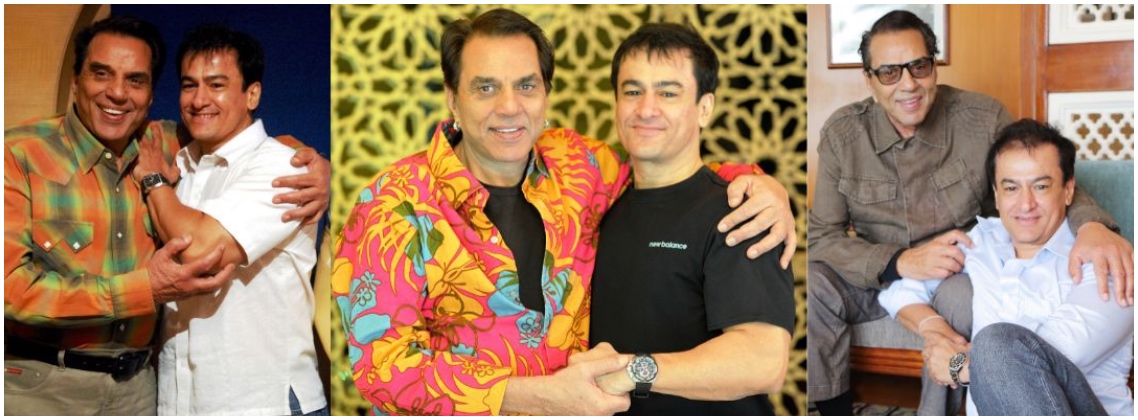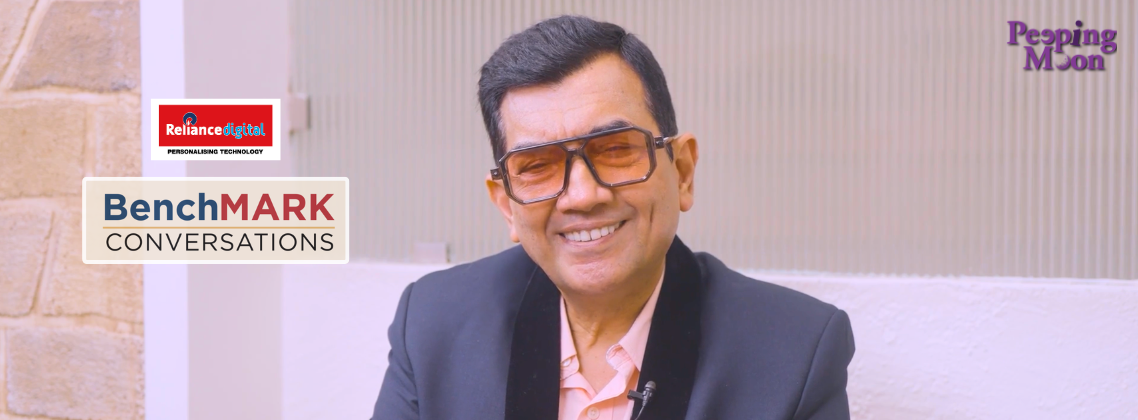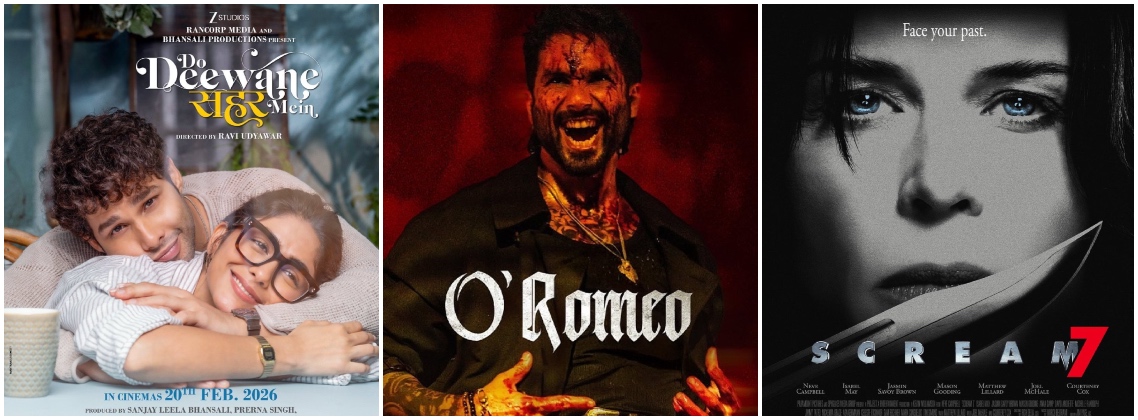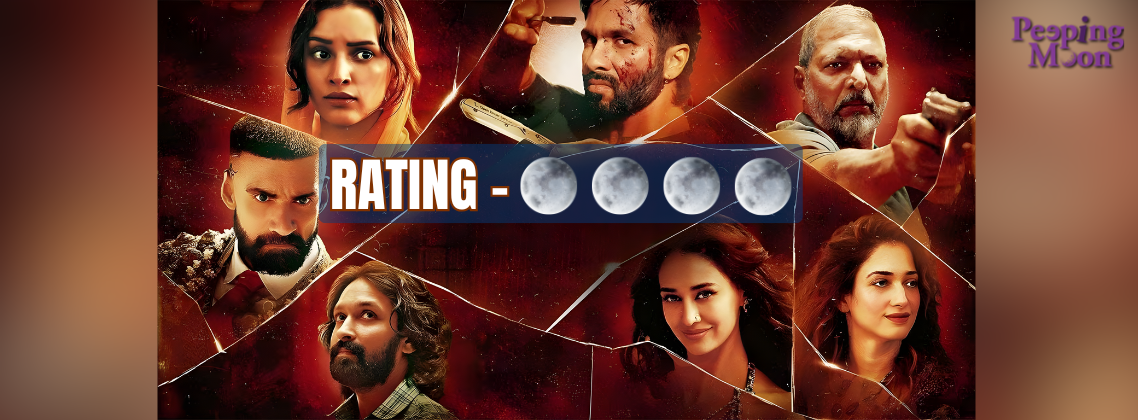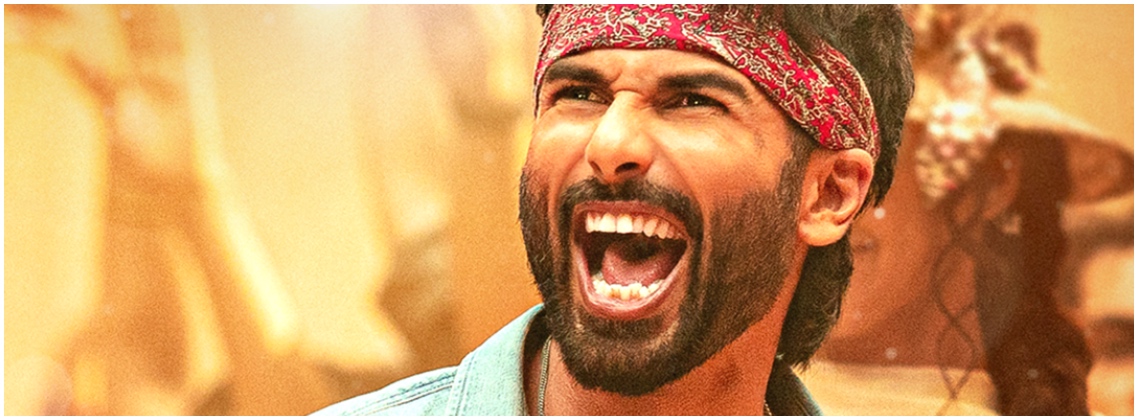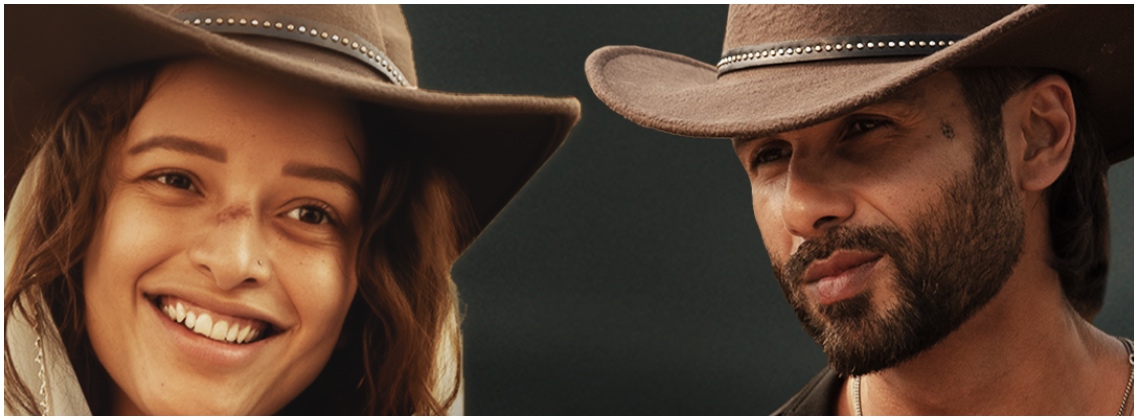To my mind, the thumping success behind Dharma Productions comes down to two main reasons: the creative genius of Karan Johar; and, the thrifty business sense of Apoorva Mehta. Quietly, they complement each other. Karan, I know. Apoorva I got to know over coffee the other day. He is a shy and unassuming executive. With the foresight and astuteness for filmmaking of a sharp Gujarati businessman. What Shah Rukh Khan charmingly refers to as the “Baniye ka dimag” in Raees, his 2017 film on bootlegging. The production house has three verticals: Dharma 2.0, that makes ad films and new-age content; Dharmatic, a digital content company; and, Dharma Cornerstone Agency that manages talent. Apoorva loves his job as CEO and producer because every day is unique. He told me with a half-smile on his youthful face, “There is some crisis always going on. While it is a 9 to 5 job it doesn’t come with repetitiveness.”
We were in his office at Dharma Productions. It is more of a study. He calls it his den. Yes, there are bookshelves. With big leather-bound tomes. They also hold the many trophies Apoorva’s films have been awarded over the years. Plus, a painting. A neat and orderly desk with a stainless steel flask from home. A high-backed chair. Outside, young people rushed about energetically. Gehraiyaan had just been released on Amazon Prime Video. The josh was high. Excerpts from our chat:
.jpg)
Which was the first film in which your name appeared?
I joined Karan Johar in 2005 and Kabhi Alvida Na Kehna was the first film I worked on. It was an unique experience as I never did film production before that. Everything that could go wrong, went wrong on that film. I say that has been the best teacher in my life. I remember when the film’s shooting in New York was wrapping up, there was nobody as pleased as I was. I was new when I worked on Kabhi Alvida Na Kehna, a multi-starrer featuring Amitabh Bachchan, Shah Rukh Khan, Preity Zinta, Rani Mukerji, John Abraham, Kajol and Abhishek Bachchan. I was a person with zero experience who was pretending to know what he was doing but knowing nothing. When I saw the first copy of Kabhi Alvida Na Kehna, I went off to sleep because I was so exhausted. I had taken the film to the Toronto Film Festival. After I returned, a screening was held for everyone and I went there and slept after some time. Karan was hopping mad and rightly so. After I saw the film nicely, it was very very exciting.
What makes Dharma Productions a leader in the industry?
What works for us is we make our films straight from the heart, mind and skill. That’s what differentiates us from many others. It is the love for films that Karan exemplifies and that is imbibed in each one of us in the organisation. We found a mid-path because either companies are very corporate or they think only from their heart where you make many mistakes at some point because you are not thinking about the financial aspect. I believe we found the right path by merging and marrying the two correctly.

What’s your role in the success of Dharma Productions?
Karan and my partnership works well because we have managed to divide the role between ourselves. He is a creative master. The idea is if he starts looking at every aspect of filmmaking, his ability and time to be creative will be compromised. Once he finalizes a project, I enter the picture. I look into the production, schedules, finance, logistics and non-creative aspects that make a film happen. If Karan has to look into all the daily problems and find a solution, when will he have the time to read new scripts, meet new talents? There is a proper demarcation. Karan has no interest in the business part and I don’t have the patience to be creative.
You are the CEO and also produce films. Are they two different hats?
Yes, they are two different hats. A producer is only involved with the film whereas a CEO has to look into the running of the company. While I make films, there is also an administrative aspect of running the company. I look into the completion of a project as well as running the company.
.jpg)
During Covid, your film Gunjan Saxena: The Kargil Girl had to be released on an OTT platform. It was only the second mainstream Bollywood film going down that route. Was it disappointing or were you happy with the decision?
Cannot call it disappointment but there was a certain amount of expectation we had. With Gunjan Saxena, we knew we had a good product in our hands. While the aim was theatres, the reality was we are cognizant about what’s happening around us. The film was made by a first time director and it was Janhvi Kapoor’s second film. The film was made by a smaller team. We didn’t know how long to wait and there are stakeholders, people who are associated with the film who are looking to move on. There is a cost involved in carrying the film forward. All these factors made us think about an OTT premiere as there was no clarity about normalcy. In hindsight, we were happy as we were able to release the film.
How has Covid changed your mindset?
The pandemic has revolutionized the way content is viewed now. There is so much acceptance and time spent on consuming OTT content. Three things were important to us with Gunjan Saxena: it has to reach out to a larger audience; it has to be marketed just like a theatrical film; and, should be financially profitable for us. For me, all those three boxes were ticked. We were not skeptical as we had intensive marketing meetings with Netflix and their team was also very excited. While the film was coming out on an OTT platform, there was no reason to market it any less than a theatrical film. Netflix also shared the same sentiment. It was just a matter of the screen size.
.jpg)
After Gunjan Saxena’s success, were you encouraged to keep the option of OTT open? Films like Shershaah and Gehraiyaan are examples.
Gehraiyaan was not meant to be an OTT release, it was theatrical. It is a mature film for a mature audience, it is about relationships. Since December, after the outbreak of Omicron, nothing is certain. Many films have been impacted due to the situation. There are many countries that still have their theatres shut. It would have been a film that would be watched in a challenging environment so why should we take that risk? We have targeted a slate for ourselves and we will go by our plan. At this time, a theatrical release didn’t seem correct.
You took a brave decision by backing Bahubali...
The entire credit goes to Karan for Bahubali. He is well acquainted with the South industry and had seen some rushes of the film. I was not very confident about South cinema due to lack of knowledge and interest. When he showed us what he saw, we were blown away. We always knew that the film is very special and it will do well but we never anticipated that the success would be what it is today. Thanks to Rana (Daggubati) for bringing the film to Karan.
South films and stars are now making inroads in the Hindi belt too..
If you see the success of Pushpa, you can tell that people have become language-agnostic. They are happy to watch content in any language as long as they are enjoying it. South films are somewhere filling the empty areas that we have in Hindi cinema. They have entertaining films with a distinct mass appeal. They have been able to fill in the niche that we have not been able to do. We, of course, don’t have films in the same genre but in the same world – like Sooryavanshi. Rohit Shetty is the best example of those high-class entertaining films. But they are far and few.
.jpg)
Are you happy with this change?
I am happy because there is acceptance of different kinds of content and you are enthused to make something slightly different. Plus, you have the ability to cast South actors in your films and also crossover a Hindi film to the South market. The opposite crossover has happened and we have accepted South films but I don’t think the South will do so. They are still closed and very loyal to their actors. Now, if there is a chance to cross-pollinate and work with South actors, there is still a chance to increase our market shares there.
There are no barriers to entry in the web space. Dharmatic has made web shows too. Does the competition in that market worry you?
It doesn’t really worry me. Yes, It is a tough business because there are no barriers to entry in making content for the OTT platform unlike Bollywood where you need an actor’s availability, distribution strength etc. to make a film and put it out there. On OTT, if you have an idea and a platform agrees to back the idea, you can make it. Since there are no barriers, it becomes tougher. But, there is no fear because most of these are commissioned models and no box office metrics to worry about.
Dharma Productions has been encouraging young talents. What’s the idea behind it?
I have seen aspiring directors with a vision. We are happy to be in a position where we can encourage work-hungry people and give back to the ecosystem too. These first-time directors are hungrier than experienced ones as they have lived with their script for years. There is a certain hunger to prove themselves. They are a part of evolution as they are young. They are growing with it. We also get a chance to groom that person for a few more films with us.
What next for Dharma Productions?
At Dharma Productions, we’ll continue making more films. We are sure that films and web shows under Dharmatic are the cornerstones of our existence. We are content creators and that’s how we would like to be for now.



